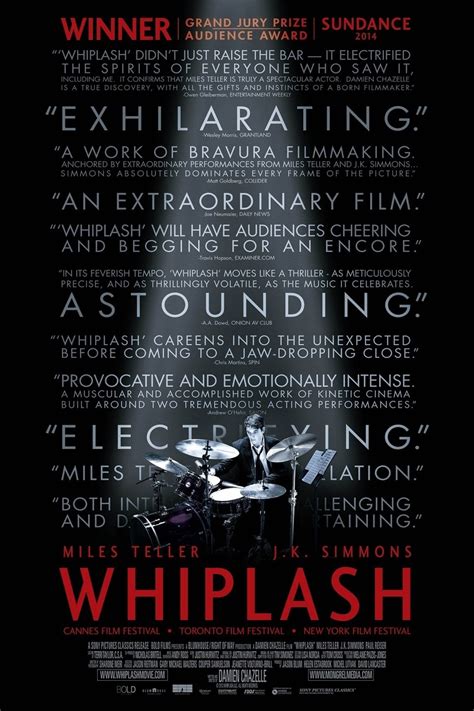The world of music, particularly jazz, is renowned for its demand for perfection, its relentless pursuit of greatness. This backdrop serves as the foundation for Damien Chazelle’s 2014 psychological drama, Whiplash, a film that plunges deep into the complex, often toxic, relationship between a ambitious young drummer and his draconian instructor. With its stark portrayal of obsession, ambition, and the blurred lines between mentorship and abuse, Whiplash presents a compelling, albeit uncomfortable, viewing experience that challenges perceptions of what it means to be truly great.
At the heart of Whiplash is Andrew Neyman, played by Miles Teller, a young drummer who enrolls in the prestigious Shaffer Conservatory, seeking to become one of the greats. His entry into the conservatory’s top jazz ensemble, led by the formidable Terence Fletcher, marks the beginning of a grueling journey. J.K. Simmons, in his Oscar-winning portrayal of Fletcher, brings to life a character so intensely compelling and terrifying that he dominates every scene he’s in. Fletcher’s teaching methods are unorthodox and brutal, pushing his students to their limits through verbal abuse, physical intimidation, and a relentless demand for perfection.
As the story unfolds, the dynamic between Andrew and Fletcher becomes increasingly complex. Fletcher’s relentless pursuit of excellence from his students, particularly Andrew, whom he sees as having the potential for greatness, leads to a series of intense, dramatic confrontations. These scenes, often uncomfortable to watch, raise questions about the morality of Fletcher’s methods and the psychological impact they have on his students. The lines between dedication and obsession, guidance and abuse, become blurred, leaving the audience to ponder the true cost of achieving greatness.
One of the standout elements of Whiplash is its cinematography, which complements the film’s tense and chaotic atmosphere. The use of close-ups and medium shots during the band’s rehearsals and performances creates a sense of claustrophobia and intensity, mirroring the pressure the characters are under. The sound design is equally impressive, with the jazz performances being a highlight of the film. The way the music is woven into the narrative, often reflecting the characters’ emotional states and the tensions between them, adds another layer of depth to the story.
The theme of obsession is deeply explored throughout the film, both in terms of the characters’ ambitions and their personal relationships. Andrew’s fixation on becoming a great drummer leads him to sacrifice his personal life and relationships, echoing Fletcher’s own singular focus on music. The film suggests that greatness often requires such sacrifices, but it also questions whether these costs are too high, especially when they involve the wellbeing and happiness of those striving for excellence.
In conclusion, Whiplash is a powerful exploration of ambition, perfection, and the complexities of the mentor-student relationship. With superb performances, especially from J.K. Simmons, and a narrative that is both captivating and thought-provoking, the film challenges viewers to consider the true nature of greatness and the lengths to which one should go to achieve it. As the credits roll, the audience is left with a lasting impression, a reminder that the pursuit of excellence, while admirable, must be tempered with compassion, understanding, and a deep respect for the human spirit.
FAQ Section
What are the central themes of Whiplash?
+The central themes of Whiplash include the pursuit of excellence, the cost of ambition, and the complexities of mentor-student relationships. The film also explores themes of obsession, perfection, and the psychological impact of extreme pressure on individuals.
What awards did Whiplash receive?
+Whiplash received several awards and nominations, with J.K. Simmons winning the Academy Award for Best Supporting Actor for his portrayal of Terence Fletcher. The film itself was nominated for Best Picture and won awards for Best Film Editing and Best Sound Mixing.
Is Whiplash based on real events or people?
+While Whiplash is not based directly on real events or people, its script was influenced by writer-director Damien Chazelle’s own experiences in a jazz ensemble. The character of Terence Fletcher is a composite of several instructors Chazelle encountered, emphasizing the intense pressure and sometimes abusive environments that can exist in the pursuit of musical excellence.



